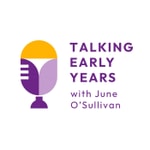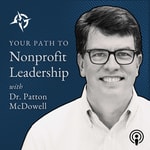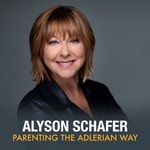Talking Early Years with June O'Sullivan – Détails, épisodes et analyse
Détails du podcast
Informations techniques et générales issues du flux RSS du podcast.

Talking Early Years with June O'Sullivan
June O'Sullivan
Fréquence : 1 épisode/35j. Total Éps: 47

An inspiring, outspoken speaker, author, podcaster and regular media commentator, June O'Sullivan MBE is Chief Executive of the London Early Years Foundation (LEYF), one of London’s largest and most successful charitable social enterprises, operating 42 award-winning nurseries in some of London’s most disadvantaged areas.Her monthly ‘real talk’ and no-holds-barred podcasts dive into the questions, topics and debates on all things Early Years, Parenting and Social Business – plus much, much more.
Classements récents
Dernières positions dans les classements Apple Podcasts et Spotify.
Apple Podcasts
🇬🇧 Grande Bretagne - nonProfit
24/12/2024#3🇬🇧 Grande Bretagne - nonProfit
23/12/2024#8🇬🇧 Grande Bretagne - nonProfit
20/12/2024#92🇬🇧 Grande Bretagne - nonProfit
19/12/2024#93🇬🇧 Grande Bretagne - nonProfit
13/12/2024#61🇬🇧 Grande Bretagne - nonProfit
12/12/2024#42🇬🇧 Grande Bretagne - nonProfit
11/12/2024#25🇬🇧 Grande Bretagne - nonProfit
10/12/2024#16🇬🇧 Grande Bretagne - nonProfit
05/12/2024#90🇬🇧 Grande Bretagne - nonProfit
04/12/2024#88
Spotify
Aucun classement récent disponible
Liens partagés entre épisodes et podcasts
Liens présents dans les descriptions d'épisodes et autres podcasts les utilisant également.
See all- https://www.prisonersfamilies.org/
7 partages
- https://www.bikeworks.org.uk/
5 partages
- https://belu.org/
4 partages
Qualité et score du flux RSS
Évaluation technique de la qualité et de la structure du flux RSS.
See allScore global : 52%
Historique des publications
Répartition mensuelle des publications d'épisodes au fil des années.
Talking Early Years: June O'Sullivan and Sally Hogg
Saison 5 · Épisode 6
lundi 15 juillet 2024 • Durée 24:25
Baby, It’s Time
Do you think babies are a focus of care and education policy enough? Do we have a baby policy blind spot? We think so!
This is the subject of my conversation with Sally Hogg, Senior Policy Fellow at the Centre for Research on Playing Education, Development and Learning better known as PEDAL.
Why has this issue become so important now? Well, because of the speed of the childcare expansion. From September, babies from nine months will be able to access a nursery place. Getting it right from conception to two years is more crucial than at any other stage of learning. The brain development in babies is startling. Just imagine the baby brain as a firework of synaptic connections, fizzing across brains and forming strong cerebral pathways.
If you are interested in the Under 2's and what makes great practice, listen to my conversation with Sally Hogg and share it widely. You know the drill!
Talking Early Years: June O'Sullivan and Professor Al Aynsley-Green
Saison 5 · Épisode 5
vendredi 31 mai 2024 • Durée 35:08
It’s fitting that this podcast is being aired on International Children’s Day because Sir Al is a huge advocate for children over his very busy and noteworthy 50 years. His message is powerful, and he pulls no punches about his frustration over the failure of our country to take seriously the importance of children, and particularly those in the Early Years.
“Every child should be given the resources to achieve her or his full potential. Now, why don't we have that being articulated, let alone actioned? It is utterly dire in my view.”
He despairs at the serious erosion of the basic humanity of the caring services and his new purpose is putting compassion back into compassionate care that we provide for people, especially children.
“There is a mismatch between our wonderful science and all of our services and the dismal failure of politicians to recognise the importance of children “.
“…chiselled in letters of stone over every Department of State should be this. We need healthy, educated, creative, resilient and happy children, with the life skills to become the productive adults of the future and the competent parents of the future.”
Reflecting on Every Child Matters which he describes as the world's best policy programme for children (one for which he proudly shared across the world) – it was the brainchild of the Labour Party, then destroyed by a triple whammy. The Coalition government dismantling it without any serious debate, then austerity followed (and its dreadful impact on families), followed by COVID. Effectively, it was the destruction of the world's best policy programme for children which he despairs does not appear to be top of the Labour manifesto.
We discuss the low birth rate, the old age dependency ratio between working adults and the elderly, fertility rates, immigration, the science of attachment, brain development, synaptic connection, his book The British Betrayal of Childhood and much more…
Listen to his call to action and get involved. Start by listening and sharing this podcast…
Talking Early Years: Why are Men in Childcare such a rare species?
Saison 4 · Épisode 5
vendredi 8 décembre 2023 • Durée 32:45
For International Men’s Day on the 19th November 2012, I invited as many men as I could find who worked in Early Childhood Education and Care (ECEC) to join us for a drink to discuss how we might build a London Men in Childcare Network.
We wanted to create a place where we could learn from the men who worked in Early Years about how they were experiencing the sector. The evening was sparked by a conversation with David Stevens, who persuaded me that we should do more about encouraging Men in Childcare (MiC) across the sector, not just at LEYF. At the time, David was a Nursery Manager of a nursery where four of the six staff were men. This had not been a planned staffing arrangement but happened because other men wanted to be in a setting where they felt welcomed.
Since then, we have conducted plenty of surveys which show that nearly 100% of female nursery staff were generally supportive of having male colleagues. They like the balance and think that it’s also good for children to see the gender stereotypes disrupted.
We saw progress with a steady 8% at LEYF, but this was still not good enough. Given the efforts to encourage MiC, why has the sector begun to slip backwards again, given the obvious benefits for both children and staff? We are now back down to 2%, behind even the Government’s own target of 3%.
This is the question I often discuss with David Stevens (Nursery Teacher), Greg Lane (below, Manager of Soho Nursery and Arts & Cultural Partnerships Lead) and Konstantinos Skordas (Pedagogy Manager and Chair of the LEYF MiC Community of Practice group).
Listen and let us know what you think? Should we have more MiC? Do we need a wider MiC Community of Practice?
Talking Early Years: What’s Age Got to Do With It?
Saison 4 · Épisode 4
vendredi 8 décembre 2023 • Durée 24:59
My guest, Stuart Lewis, CEO of Rest Less, began to think about another response after conversations with his dad about the length of retirement. He noted that his dad would have spent 25 years in retirement which is enough time to rethink a career. I totally understood that because my own Dad only stopped driving his taxi aged 75 and probably would have gone on longer but he had to care for my mother.
After his dad died, Stuart watched a programme about an intergenerational nursery and was moved by the benefits of having older people and children together. Underpinned by the impetus that necessity is the mother of invention, he formed Rest Less, a staffing agency focused on the Over 50s. It was a sensible response when you learn that:
- 1/3 of the working population is over the age of 50
- Retention of the over 50s is better
- 70% of employment growth is in the over 50s age bracket
- Half a million people over the age of 50 want to work
- Intergenerational teams have better outcomes for staff and the business
However, we do live in a very ageist world, especially for women. People operate in negative stereotypes and think older people are not physically able and will be off sick more. That is not true! I would assert that ageism is socially acceptable and it's often missing from the EDI agenda.
The UK chancellor says he wants more of these people back to work. But statements alone at a national level simply cannot change things. Organisations need to think about their own longevity strategies and how that relates to members of their workforce who need to feel encouraged, valued and included if there is any hope of retaining them. A continued shortage of labour and an aging workforce will weigh heavy on growth prospects for the UK economy.
So, let’s be creative. Chuck out the ageist bias like Ikea chucked out the chintz!
Listen to my podcast with Stuart and find out how to engage with the Over 50s
Talking Early Years: What have Food Banks got to do with the Early Years?
Saison 4 · Épisode 3
vendredi 8 décembre 2023 • Durée 25:58
As an organisation, we have always been involved with issues of poverty and it was interesting to find that back in 1926 we were involved with the National Cookery School of Cookery which is a slightly different twist to what we are doing now. Our organisation then was known as the City of Westminster Society of Health and was helping parents to learn how to cook to support their children’s health. Children were dying from malnutrition because they had too little to eat whilst today, children from poorer families are suffering from obesity resulting from a diet of poor-quality food high in fat, sugar and salt.
Early Years is a highly political space where powerful issues of finance, education, employment, health, housing, and care all collide and we have to navigate through this with children’s futures central to the debate.
Today, we are helping by training our chefs as part of the LEYF Early Years Chef Academy, running food banks and partnering with food pantries and food distribution organisations such as City Harvest.
In this podcast, I am talking to two inspirational LEYF managers who have each gone that extra mile in the name of helping to tackle food poverty and supporting their local community.
Talking Early Years: Celebrating 120 Years at LEYF
Saison 4 · Épisode 2
mercredi 6 décembre 2023 • Durée 01:08:14
The Year That is 2023 – This year, we are proud to celebrate 120 years of LEYF. It’s been fascinating to reflect back on what has changed over that time (both good and bad) and what essentially remains the same. I consider children to be the litmus test of society and my reflections support this.
Listen in to my interview reflecting on the LEYF history with two of our longest serving LEYF staff – Maureen and Gary, and one of our apprentices, Danayt.
Look out for our new Podcast series of “Ordinary People Doing Extraordinary Things” and we are kicking off with Food Poverty.
Talking Early Years: June O'Sullivan and Stephen Gribben
Saison 4 · Épisode 9
lundi 20 novembre 2023 • Durée 20:08
I was introduced to coaching by Stephen Gribben many years ago. It was an interesting experience, and one I was not too sure how to make the best use of his generous pro bono service. However, I soon warmed to the idea of coaching which has remained with me and today we now put as many staff as possible through the Level 3 Diploma in Coaching. Since then, Stephen has written a very informative book which has explored the subject even further.
In this podcast we explore why people choose to be coached, what are their coaching intentions, do men are coached more than women and who chooses to be coached. A high proportion of those accessing coaching are CEOs, which does not surprise me because being a CEO is a lonely place whereby a CEO needs a space to think, to feel and just to download. You cannot do that with your team.
Of course, coaching is more successful if you are clear about the real reasons you want to engage with one. It can be a suggestion from your manager as part of your self-development. Stephen got very passionate about the difference between self-improvement and self-development and what that means.
People have many reasons for having a coach, but it often starts because you want help to solve a problem or reframe it. For example, preparing to have a difficult conversation where the outcome is that both conversationalists survive and thrive from the conversation or being coached because you want to learn and not let your emotions dictate your choices, decisions and approaches or as singer/song writer, Cat Burns would say – avoid being a People Pleaser.
This podcast explores these issues and many more and leaves you with some thoughts to guide you along the coaching pathway. Click here to listen
Talking Early Years: Ordinary People Doing Extraordinary Things - Food Poverty with Alethea and Cheryl
Saison 4 · Épisode 3
mardi 25 juillet 2023 • Durée 25:58
What have Food Banks got to do with the Early Years?
This year, LEYF is celebrating 120 years of history. In doing so, we are reflecting on what was in order to look towards the future.
As an organisation, we have always been involved with issues of poverty and it was interesting to find that back in 1926 we were involved with the National Cookery School of Cookery which is a slightly different twist to what we are doing now.
In this podcast, I am talking to two inspirational LEYF managers who have each gone that extra mile in the name of helping to tackle food poverty and supporting their local community.
Talking Early Years: June O'Sullivan and Krupesh Hirani
Saison 4 · Épisode 1
mardi 24 janvier 2023 • Durée 38:40
June kicked off this year’s podcast chatting to the well-informed Krupesh Hirani, London Assembly Member for Brent and Chair of the London Assembly Health Committee and the Health Inequalities Committee.
Talking Early Years: June O'Sullivan and Teresa Heaney
Saison 3 · Épisode 5
lundi 21 novembre 2022 • Durée 50:53
Listen as Teresa Heaney, CEO of Early Childhood Ireland, explains how the Irish government has agreed to a number of positive actions following the publication of their evidence-based strategy, called First Five.









